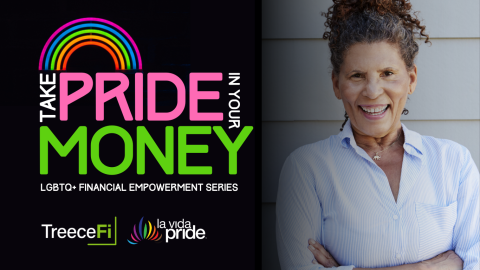
LGBTQ+ Financial Planning: Legal Documents & End-of-life Care Wishes
I would say the number one issue that comes up in my financial planning discussions is missing or incomplete legal documents and end-of-life care directives.
As the COVID-19 pandemic started, my office received many calls from people who finally felt sufficiently motivated to check their beneficiaries or inquire about important legal documents they should have such as a health care surrogate, living will, power of attorney, etc.
I guess sometimes it takes an emergency like the panic of a pandemic to focus on something like this, but here's a good point.
It is human nature to put off thinking about these things, but it’s important to remember that “it’s always too soon until it’s too late.”
The time to have insurance, for example, is before you need it. You know, you don't have health insurance, and then you've got a terrible accident or sickness. It's too late. You didn't get life insurance. And you know, if somebody passes away and you needed life insurance, you were dependent on their income, it's too late. You pass away and you don't have these documents done or any planning, and it's too late.
Protecting yourself with these legal documents can be exceptionally important for LGBT people to make sure the person they have chosen has the legal right to help them, make choices for them, and possibly head off involvement from hostile relatives that may not like that you are gay or that things are going to somebody they consider outside of the family — like a gay partner or spouse.
I work with LGBTQ+ attorneys and allies to direct our clients to get these documents done, and we assist them in using these documents when necessary. It is imperative to make sure you have all of your bases covered for every situation because you never know what life is going to throw at you - and usually when you least expect it.
If you don’t take steps to take care of yourself first - then you lose control and choices to others that may not have yours and your loved ones best interests at heart.
An unfortunately sad example that illustrates this is a gay couple I worked with where there was somewhat of an age difference between the two of them. But they've been together for many years, over 20 years. And I know that in the back of their mind, because of the age difference, they were basically expecting the older gentleman to pass away first.
However, the younger man passed away first, shocking and unexpected. And their documents and plans were not done properly to deal with this outcome.
They had their home in an LLC — a company in which they named a nephew of the deceased man as the managing member, which means the owner. And I don't know why they did some of these things. But that nephew all of a sudden becomes the legal owner of their home.
And they had to fight. A cousin had come in and got the water turned off on that house. So the surviving older man wakes up and there's no water. And I took him personally to a gay attorney to review his options.
I remember the attorney saying you don't have a right to live in your home. It's not even an eviction. It's an ejection. And to see this older man, I swear his face turned white. And I remember driving him home. And he said, I never thought I would be in this position. And I was upset with him. I said, How could you not plan for this?
But, it is human nature—people think life is going to play out in a certain way according to their plans. However, life often has other plans—and you want to make sure your loved ones, your spouse or partner, your kids, and your business are protected.
So, let’s say you’ve gotten all of your legal documents completed and your end-of-life wishes written. What’s the next step? Secure them in a safe place like a safe deposit box or on your password-protected personal computer, right?
Well, that's the worst possible place for those documents, because they may not be available to the right person when that person needs them, unless they're actually listed as co-owner of the safe deposit box or have access to your passwords.
There are e-storage systems where you can upload copies of important documents and input account information, write out your wishes, and name “deputies” to receive these documents at the right time to “leave a trail of bread crumbs” so that those who you have asked to help you have the information they need when they need it.
I share several tools with our clients, including AdviceWorks, Everplans, and Docubank.
For writing and sharing your end-of-life wishes, there is a wonderfully comprehensive resource called The Conversation Project, which is dedicated to helping individuals start conversations with family and friends about what is most important to them—and to make sure that they get the care they want. The series of free guides is available here.
The guides are posted on the TreeceFi website and I am happy to share them with you.
One of the best gifts you can give yourself and your loved ones is to take some time to review your important documents and make a plan to complete and store them properly.
Need personalized advice and referrals? I am here to help. Schedule a time to chat here.
Take Pride In Your Money: LGBTQ+ Financial Empowerment Series
Sign up at La Vida Pride now to join David Treece for a webinar series that goes beyond traditional financial planning advice. It's not just about saving and planning wisely; it's about standing tall, armed with knowledge and confidence. Equip yourself with the tools to make informed decisions and build a dedicated team of allies who have your back.
Take advantage of this unique opportunity to gain insights and advice from a pioneering LGBTQ+ advocate, access attendee-only resources, and engage in live Q&A sessions.
_ _ _
NEXT ARTICLE: Marriage & Benefits
For a comprehensive review of your personal situation, always consult with a tax or legal advisor. Neither Cetera Advisors LLC nor any of its representatives may give legal or tax advice.

